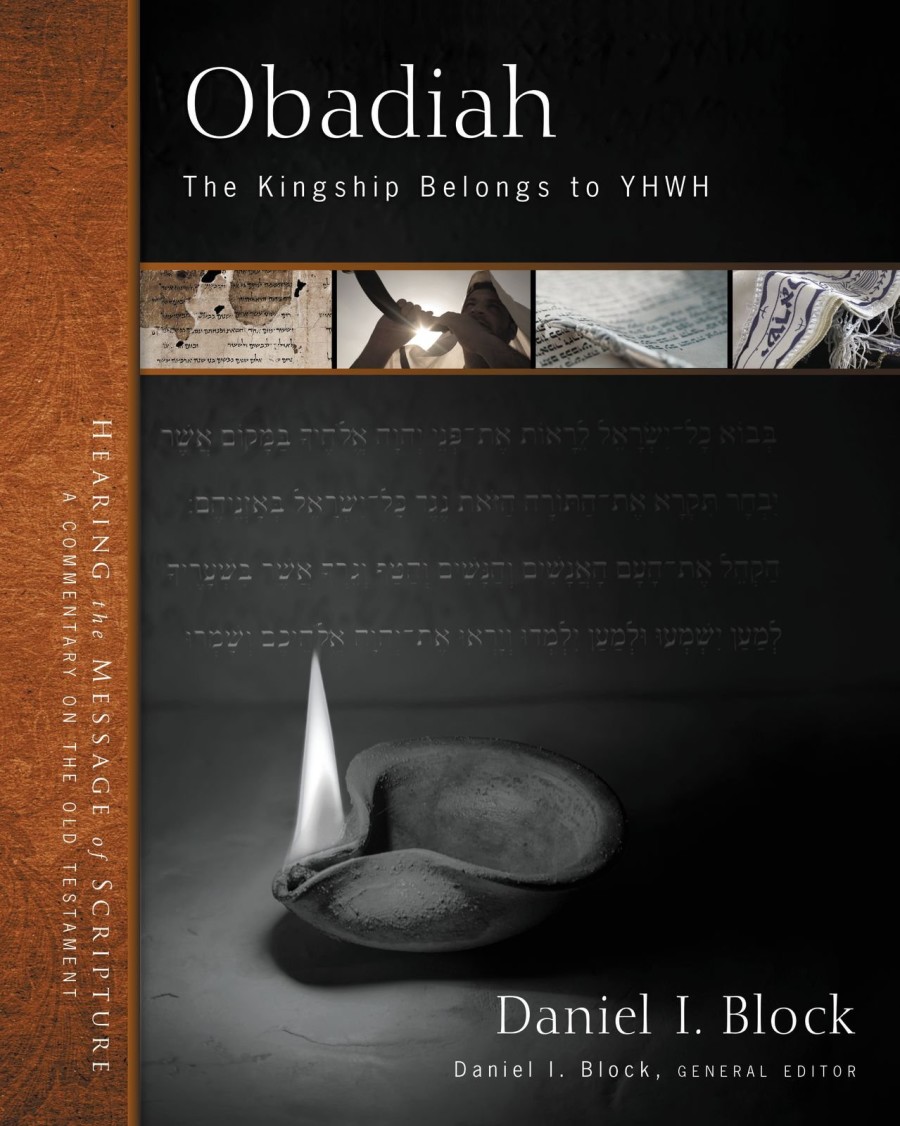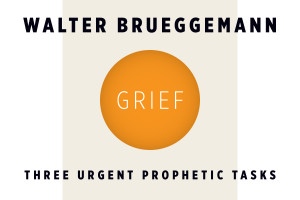With the publication of Obadiah: The Kingship Belongs to YHWH, Daniel Block (Wheaton College, IL) launches a new commentary series, of which he is the general editor, entitled Hearing the Message of Scripture: A Commentary on the Old Testament. You can see Block discussing the background and intentions of the new series in a brief video from Zondervan here. The series primarily aims to demonstrate the content of the biblical text from a rhetorical perspective, emphasizing the way in which sentences and paragraphs relate to each other as well as contribute to the meaning of the text as a whole. While the series is primarily aimed at pastors and teachers, there is no lack of serious and original exegetical work in Block’s commentary.
By examining the rhetorical perspective of the text, Block’s Obadiah roots the book’s theological message within the historical and literary nature of the text. By situating the prophetic book within its exilic location, Block identifies the historical context within which the prophecy would have been originally heard and received. Obadiah’s oracle of hope, which has its denouement in the divine kingship of YHWH, is all the more potent set against the backdrop of the theological questions that resulted from the exile. Against this backdrop the words of the prophet take on new life and significance. Block well establishes the original audience of the book in this milieu, and in doing so, opens avenues for modern readers to hear anew the word of YHWH through Obadiah.
By regarding the book as a literary whole, Block views the syntactical awkwardness that appears throughout the brief prophetic book as rhetorically intentional rather than historically accidental. Rather than offering reconstructions of a hypothetical “original” text that better corresponds with modern conceptions of appropriate form and style, Block suggests that areas of unusual construction demonstrate communicative intent. He suggests that, in such cases, “to smooth out the text is to neutralize its effect” (p. 42). Particularly helpful for this aspect of the commentary is Block’s personal translation of the text. His translation is aimed at demonstrating the style of the Hebrew text of the prophet rather than ease of reading for English speakers. This continually challenges the reader of the commentary to carefully consider the biblical text.
Following a helpful introduction in which Block lays out the method of the commentary and the context of Obadiah, the commentary is structured around five rhetorical subunits within the text characterized by a different aspect of the word “day” (yôm):
(1.) Introduction: Setting the Stage for the “Days” (v. 1)
(2.) The Judgment: Esau’s Humiliation on His “Day” of Doom (vv. 2–10)
(3.) The Indictment: Esau’s Crimes on the “Day of Jacob” (v. 11 – 14)
(4.) The Bad Good News: The Demise of Esau on the “Day of YHWH” (vv. 15–18)
(5.) The Good Good News: The Restoration of Jacob on the “Day of YHWH” (vv. 19–21)
Each chapter discusses the main idea of the passage and its literary context, provides a translation and outline, explains the structure and literary form of the subunit, and then explains the Hebrew text in some detail.
Much like the biblical book which it examines, the slight size of Obadiah: The Kingship Belongs to YHWH (the commentary is a slim 116 pages) is not indicative of its significance. Block’s discussion of the text is rigorous and detailed. By way of illustration, if a commentary were written with the same proportion of pages (116) to biblical verses (21) for the book of Jeremiah [the longest book in the Old Testament with more than 1300 verses], it would be over 7,000 pages long! The greatest strength of Block’s Obadiah is the clear and accessible way in which it communicates the theological message of Obadiah within the book’s historical and rhetorical context.
The Bottom Line: Even though Obadiah is the shortest book of the Old Testament, Block’s close reading of the text and emphasis on its rhetorical intent help demonstrate that its small size belies its theological significance both for the original audience and for modern readers.
Review by Eric Covington
University of St Andrews





Leave a Reply
Your email is safe with us.